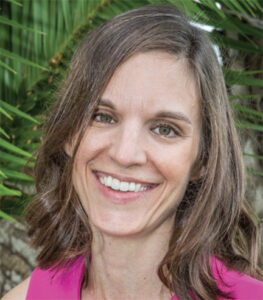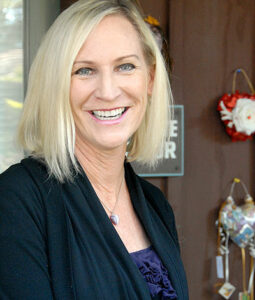Most nonprofits are scrambling for survival more than ever before. The pandemic restrictions have put the skids on their critical work in the community, raised havoc with their fundraising efforts and left many wondering if they will even be able to endure.
Yet two distinctive traits of nonprofits will help them outlast this dramatic upheaval: optimism and commitment.
Those involved in nonprofit work tend to be highly optimistic by nature. They believe they can, and should, make a difference for others. Setbacks like the virus often result in these warriors feeling even more positive about the need for their services. Some would even say that a spirit of optimism is a requirement for those called to work with charities.
Nonprofit staff, board members and supporters have a high level of commitment to their mission. Most of these people are drawn to charities that address the needs of their favorite causes. Therefore, when challenges like the virus restrictions occur their commitment moves into overdrive. They are more convinced than ever about the need for their services.
>>I have noticed several reasons to be hopeful during this crisis.
- Organizations are finding ways to collaborate more than ever before.
- Increased innovation and creativity is emerging from many groups as they find new ways of delivering their critical services and raise funds to support them.
- Elimination of status quo is encouraging efficient and effective risk-taking that is paying off.
- Philanthropic foundations and funders are looking at the needs with new eyes—focused on doing what it takes to enable nonprofits to provide their vital services to the community.
- The increase of vulnerability of all sectors of society—business, nonprofit, personal—shows that we are all reeling from similar challenges.
- There is more transparency and shared storytelling as we all confront our respective trials.
- An increase in empathy and compassion for others is resulting in enhanced financial donations.
- The light of positivity and optimism is brightening up every dark corner of fear and frustration.
>> Some local nonprofits are hopeful as they look at the rest of this year and into the next one.

Alana Walczak, CEO CALM
Alana Walczak, CEO of CALM told me that, “As we close out one of the most challenging years, I find hope in the tremendous innovation of the nonprofit sector to meet the changing needs of the community. Together, we have been responsive, nimble, and collaborative.
At CALM, I am proud that vulnerable children and families have continued to receive the help they deserve. Throughout the pandemic, CALM provided uninterrupted, essential services tailored to meet the unique challenges of our families. We pivoted to telehealth, reduced intake times, served 60% more clients, and developed new trainings and parenting groups to respond to ever-changing needs.
By partnering deeply, we identified new ways to build a foundation of critical supports for all families. We are hopeful that the new administration will make the health and well-being of children and families a priority.”

Heidi Holly, Executive Director Friendship Center
Heidi Holly, Executive Director of Friendship Center said that, “Nonprofits are the backbone of our communities. We have strong spines that make us extremely resilient, and quick to respond during a crisis, like COVID-19. When our communities are in need of a plethora of services we adapt and pivot our services to fulfill the needs of those who need it the most.
I am remaining hopeful that there is light at the end of the tunnel during these times of uncertainty. We are definitely stronger together and I remain hopeful that the many partnerships that have evolved out of this pandemic to serve our community from the nonprofit sector to the for-profit sector will remain constant, consistent and continuous to serve the needs of our community when COVID takes it final curtain call.
I am looking forward to a new administration to lead our country. Many nonprofits will benefit particularly those that focus on areas such as racial justice, immigration, affordable health care, immigration, and the environment. In addition, I’m hoping that another round of federal stimulus funds, such as the Loan Forgiveness/Paycheck Protection Program will be available for the nonprofit sector.
We definitely are stronger together! I’m also hopeful that sometime in 2021 nonprofits that have been impacted and have felt the pinch can get back to doing the good work at the service capacity they were at prior to pandemic.”

Lindsey Leonard, E.D. Alzheimer’s Association
Lindsey Leonard, Executive Director of Alzheimer’s Association, reported that, “It is heart-breaking to see the many families and individuals who have been affected by this pandemic, both physically and economically; yet, there is hope in the support of those who are stepping up to make a positive change. The Alzheimer’s Association exists to eliminate Alzheimer’s disease and all other dementia through the advancement of research; to provide and enhance care for all affected; and to reduce the risk of dementia through the promotion of brain health.
The Wall Street Journal claimed that this crisis has changed how people are giving to others: feelings of financial guilt and gratitude amongst those who are prospering during these times are leading to additional spending, tipping, and donating. According to a study done in May by Indiana University’s Lilly Family School of Philanthropy, 56% of U.S. households engaged in charitable activity in response to the crisis during the initial months of the pandemic.
The COVID-19 crisis will end, but the dementia crisis will still be with us. The Alzheimer’s Association will continue to provide and enhance care and support for all affected and accelerate research toward our vision of a world without Alzheimer’s and all other dementia.
While overall giving has decreased, we continue to see incredible generosity in both our regular and even new constituents. This is both encouraging and uplifting as the Alzheimer’s Association is committed to supporting those living with Alzheimer’s and their caregivers now more than ever. We continue to further our mission and seek out ways to increase our reach and scope of services for the nearly 3,000 families our local Chapter projects we will help this year.”
>>Fundraising continues to be a challenge for most nonprofits, but there is reason for hope.
Alana Walczak, CEO of CALM told me that, “I am happy to report at this time, CALM is fiscally strong and financially stable. With support from the community, we have maintained full staffing and all services throughout the pandemic. However, we anticipate a tsunami of mental health crises in the months ahead.
As such, CALM is preparing for the future. As we enter the dark, cold winter months, we are developing capacity to meet the growing needs. We ask the community to sustain our efforts to support the health and well-being of thousands of children and families.”
Heidi Holly, Executive Director of Friendship Center said that, “Membership fees have declined at Friendship Center which was the largest revenue stream for our services. For more than eight months we have pivoted our services and created a new delivery model to serve aging adults with health conditions and their caregivers in our community. We are aware of the importance of the health of our families, and the need for companionship, and respite for caregivers is so paramount.
Our staff team has never worked harder, nor have our board members, to support our membership during these difficult times; they are all Rock Stars! Our work continues, as does our mission, and we still need your support more than ever.”
Lindsey Leonard, Executive Director of Alzheimer’s Association, reported that, “The Alzheimer’s Association Walk to End Alzheimer’s is the world’s largest event to raise awareness and funds for Alzheimer’s care, support and research. Due to the impact of the pandemic, our 2020 Walk fundraising decreased by more than 40 percent in comparison to previous years. We are extremely grateful for the contributions that have been made to get us to this point (and fundraising continues through the end of the year), and we are proud of the accomplishments that have been achieved by our volunteers and staff.
However, there is an urgency to increase funds to accelerate research in dramatic ways that will lead to earlier diagnosis, improved treatment and, ultimately, a cure, as well as to continue to provide our free high quality programs and services. People living with Alzheimer’s disease and other dementia and their caregivers are uniquely impacted and vulnerable at this time. People with dementia are at increased risk of serious complications relative to COVID-19 due to their age and likelihood of coexisting conditions.
A recent Alzheimer’s Association analysis of CDC data indicates that during the COVID-19 pandemic there have been 2,990 more deaths from Alzheimer’s and dementia in California than expected — a 16.6% increase compared to the five-year average.
During this unprecedented time, those living with dementia and their caregivers continue to turn to the Alzheimer’s Association and we, in turn, continue to support them. The Alzheimer’s Association 24/7 Helpline staff remain available to provide free around the clock care and support at 800-272-3900.
We encourage community members to get involved by volunteering or by making a donation today.
